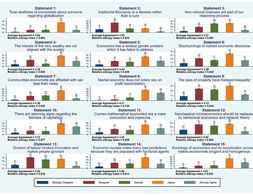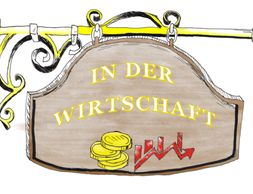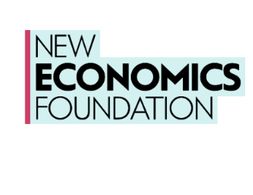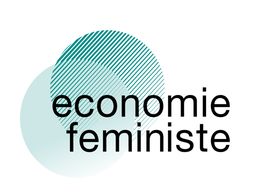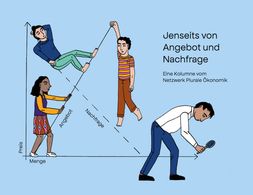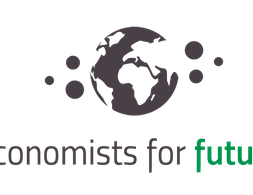887 Ergebnisse
To grasp sex in all its complexity, including its relationship to gender, class, race and power, Srinivasan argues that we need to move beyond the simplistic views of consent in the form of yes-no, to rather consider the more complex question of wanted-unwanted.
The Price of Slavery analyzes Marx's critique of capitalist slavery and its implications for the Caribbean thought of Toussaint Louverture, Henry Christophe, C. L. R. James, Aimé Césaire, Jacques Stephen Alexis, and Suzanne Césaire. Nick Nesbitt assesses the limitations of the literature on capitalism and slavery since Eric Williams in light of Marx's key concept of the social forms of labor, wealth, and value.
Identity politics is everywhere, polarising discourse from the campaign trail to the classroom and amplifying antagonisms in the media. But the compulsively referenced phrase bears little resemblance to the concept as first introduced by the radical Black feminist Combahee River Collective.
This lecture acts as an introduction to the Macroeconomics course (ECON 720) at John Jay College. Throughout the lecture, the classical and Keynesian conceptions of macroeconomic relationships are contrasted.
This course is an introduction to macroeconomics with a specific focus on the euro area. The theoretical part provides a critical presentation of the two key macroeconomic models: the (neo)classical approach and the Keynesian approach. This allows a comparative analysis of important macroeconomic topics:
- unemployment
- inflation
- government debt and Modern Monetary Theory
- banks and financial crises.
The policy-oriented part discusses the monetary policy of the ECB and the specific challenges for fiscal policy in the euro area. The course also presents other euro area specific topics: Optimum currency area, euro crises, Next Generation EU and Green New Deal.
Mohsen Javdani and Ha-Joon Changonline examine the effect of ideological bias among economists through a randomised controlled experiment involving 2,425 economists in 19 countries. The analysis provides clear evidence for the existence of ideological bias as well as of authority bias among economists.
Whiteness is a process of learning: one is not born white, but becomes one. In this rich and compelling volume, Sriprakash, Rudolph and Gerrard offer a meticulous (and eye-opening) reading of educational experiences and structures that endorse systemic racism.
The book’s central theme is to develop a new theory of speculative capital related to other forms of capital, the world market, and the state. Unlike most marxist and heterodox theories, the book distinguishes credit and fictitious capital from speculative capital to show its hegemony today in the capital markets.
This course will expose students to some of the key debates that link digital transformations to economic, social, and political inequalities. Students will be familiarised with a variety of theoretical movements in development studies and internet studies: exploring thinking that frames the internet as a leveller that can bridge divides vs. exploring the internet as an infrastructure that amplifies existing inequalities.
To explain the pronounced instability of the world economy since the 1970s, the book offers an important and systematic theoretical examination of money and finance.
This course is part of the SDG initiative addressing the UN Sustainable Development Goals, specifically for the following SDGs [1, 8, 10 and 16].
Some economic events are so major and unsettling that they “change everything.” Such is the case with the financial crisis that started in the summer of 2007 and is still a drag on the world economy. Yet enough time has now elapsed for economists to consider questions that run deeper than the usual focus on the immediate causes and consequences of the crisis.
In this course you'll learn about the tools used by scientists to understand complex systems. The topics you'll learn about include dynamics, chaos, fractals, information theory, self-organization, agent-based modeling, and networks.
Julia und Rudi treffen sich in der 54. Folge mit Fred Heussner und Rike Reimer aus dem Netzwerk Plurale Ökonomik. Sie sprechen über die Entstehung, die Ziele und die Entwicklung des Projekts und erfahren zudem, wie sowohl die Finanzkrise als auch die Klimakatastrophe die Kritik des Netzwerks über die Zeit beeinflussen und verändern.
The policy briefing provides a data-rich overview over the budgets planned for public services in the UK and their connection to inflation expectations. It highlights the fact that inflation might lead to "invisible" cuts to public sector budgets.
The concern of this book is how to model time series statistically and there is emphasized the practical, applied aspects of statistical time series modeling. The author aims to provide methods that may be used to understand and analyze time series that accur in the “real world” that researchers face.
A previously unpublished collection of Rodney's essays on Marxism, spanning his engagement with of Black Power, Ujamaa Villages, and the everyday people who put an end to a colonial era
The most influential and controversial economist of the twentieth century, John Maynard Keynes was the leading founder of modern macroeconomics, and was also an important historical figure as a critic of the Versailles Peace Treaty after World War I and an architect of the Bretton Woods international monetary system after World War II.
Economiefeministe sammelt, systematisiert, diskutiert, vermittelt und schafft ökonomisches Wissen aus feministischer Perspektive.
Die meisten Sozialwissenschaften beschäftigen sich mit der Ideengeschichte ihres Faches im Grundstudium. Anders in der Volkswirtschaftslehre. Aber ist nicht der Kontext eines Modells oder einer Theorie, bzw. die jeweilige Entstehungsgeschichte entscheidend, um es in der Tiefe zu verstehen? Ein Essay von Luisa Jentsch.
In der Kolumne Jenseits von Angebot & Nachfrage nehmen Autor*innen aus dem Netzwerk Plurale Ökonomik die fachlichen Scheuklappen der Lehrbuchökonomie ab und werfen einen pluralökonomischen Blick auf gesellschaftspolitische Fragestellungen.
Im Angesicht der Klimakrise und der Fridays-for-Future-Proteste hat das Netzwerk Plurale Ökonomik unter #Economists4Future dazu aufgerufen, Impulse für neues ökonomisches Denken zu setzen und bislang wenig beachtete Aspekte der Klimaschutzdebatte in den Fokus zu rücken. Dabei geht es beispielsweise um den Umgang mit Unsicherheiten und Komplexität sowie um Existenzgrundlagen und soziale Konflikte. Außerdem werden vielfältige Wege hin zu einer klimafreundlichen Wirtschaftsweise diskutiert – unter anderem Konzepte eines europäischen Green New Deals oder Ansätze einer Postwachstumsökonomie. Hier finden Sie alle Beiträge, die im Rahmen der Serie erschienen sind.
Pluriverse: A Post-Development Dictionary contains over one hundred essays on transformative initiatives and alternatives to the currently dominant processes of globalized development, including its structural roots in modernity, capitalism, state domination, and masculinist values.
Wir nutzen Cookies. Klicke auf "Akzeptieren" um uns dabei zu helfen, Exploring Economics immer besser zu machen!






